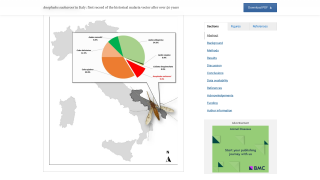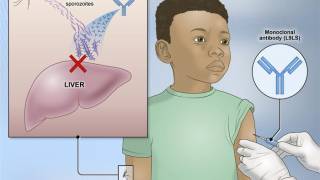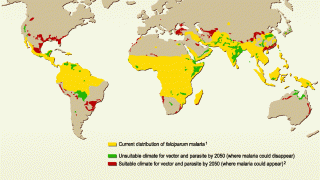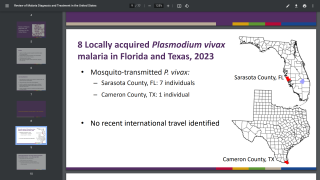Malaria Vaccine Candidate Testing Smallpox Process

Three research institutions announced they will collaborate on a new approach to developing a malaria vaccine for humans. These researchers are still on the hunt for a malaria vaccine that can confer higher levels of efficacy.
According to the Centers For Disease Control and Prevention, about 2,100 people in the United States have malaria each year, and 69% require hospitalization.
Malaria killed more than 429,000 people in 2015, most of them young African children.
The concept being tested is similar to that used by Edward Jenner to develop a vaccine against smallpox, the only disease affecting humans that has ever been eradicated.
Jenner used cowpox--a similar but much less dangerous bovine version of the disease--to inoculate people against smallpox.
In this clinical trial, based on data from earlier animal studies conducted by iMM Lisboa, the researchers will use a rodent version of the malaria-causing parasite (known as Plasmodium berghei) to determine if it can induce protection against infection by Plasmodium falciparum, the deadliest version of the parasite that infects humans.
In the study, a specific gene from P. falciparum known as the circumsporozoite protein (CS), will be inserted into the rodent parasite, resulting in a genetically modified version known as Pb(PfCS@UIS4).
By inserting the gene for CS, the researchers hope to improve the potential of the modified rodent parasite to induce a protective response in healthy human volunteers.
"Bringing together the concept underlying the first vaccine ever developed, when Edward Jenner used the cowpox virus to immunize people against smallpox, with modern genetic manipulation tools, has resulted in a truly innovative approach to malaria vaccination," said Miguel Prudêncio, who is leading the research team at iMM Lisboa.
"This is the first time we have tested a genetically modified malaria vaccine approach in Europe using this rodent parasite," said Robert Sauerwein, principal investigator and professor of medical parasitology at Radboudumc.
"Along with our partners in the Netherlands, the Havenziekenhuis and Erasmus MC, we're looking forward to investigating whether this novel concept might one day contribute to the elimination and eradication of this terrible disease."
"Although much progress has been made to drive down the malaria burden with currently-available interventions, a highly effective vaccine would be an important new tool for malaria elimination," said Ashley Birkett, director of PATH's Malaria Vaccine Initiative (MVI).
Additionally, a new malaria vaccine, called RTS,S, is being given to children in parts of Ghana, Kenya, and Malawi. RTS,S was developed by GlaxoSmithKline and is the first malaria vaccine to succeed in a phase 3 trial, said the WHO.
The PATH's Center for Vaccine Innovation and Access, will provide financial support for the project, input into trial design, and oversight for the clinical studies. MVI also supported previous toxicology studies. Radboudumc, a leader in controlled human malaria infection with P. falciparum, will lead, implement, and conduct the study in the Netherlands. iMM Lisboa, a nonprofit research institute devoted to biomedical research, will collaborate with Radboudumc on the conduct of the clinical trial and will provide the vaccine candidate, Pb(PfCS@UIS4), for use.
Our Trust Standards: Medical Advisory Committee


























